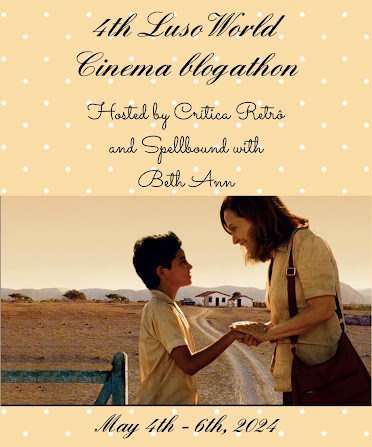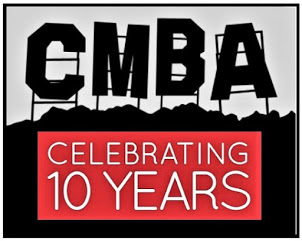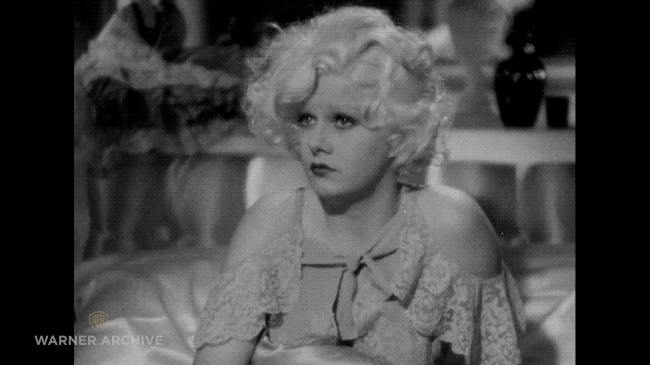
The drudgery of everyday life. Image: IMDb
Once, during our travels, we met a family returning from Ireland. We asked about their trip, and the mother gave an unexpected response.
“Our hotel had the strangest way of laundering underwear,” she said. “It was like they dry cleaned it. They pinned it on coat hangers and hung it in our room in plastic bags.”
It’s an unusual appraisal of a nation, but it just goes to show everyone sees things in their own way, especially while travelling.
We ourselves have our own peculiar bent. Once, when we returned from overseas, one of the first things we said was, “They have bizarre meat,” as though we were the Authority on what is and isn’t Proper Meat.
Many folks travel to Expand Their Horizons, but there are those of us who get in the way of our own experiences.
This is something Alfred Hitchcock touches upon in the 1932 comedy-drama, Rich and Strange (a.k.a. East of Shanghai).

Making Eyes at Another Woman. Image: IMDb
Rich and Strange is the story of a young married couple (Henry Kendall and Joan Barry) who are In Love but are Very Poor and long to be Rich. Happily, they receive an unexpected monetary windfall, so they buy fabulous clothes and go travelling.
However, they eventually realize a life of hedonism is not for them and – spoiler! – when the money runs out, they gladly return to their former life.
But, while they are flush, the couple visit exotic places, e.g. Paris nightclubs, the Mediterranean Sea, and the Suez Canal.
Travel is easy for these people. They’re chauffeured and nourished and itinerary-ed. There’s no struggling with foreign languages, no difficulty in exchanging currencies, no getting utterly lost.
Alas, without these usual rigours, our couple begin to fall out of love with each other, and in love with fellow travellers, because why not? It’s a Big World out there, filled with beautiful, glamorous people; why should anyone be stuck with ol’ what’s ‘er name? (Although, in the case of Kendall’s character, it’s hard to see what, exactly, women find appealing.)
Rich and Strange is not a film that inspires you to book your next vacation with a tour group. You get the sense travel is wasted on these characters, because marital alienation can, frankly, occur anywhere. We (yours truly) believe if a film takes us to exotic locations, then we’d better get plenty o’ Adventure and Thrills.
This is not that film. But we do have a portrait of a marriage between a dissatisfied man and Let’s-Get-Through-This woman who discover what is most Important to them.

No money, no friends. Image: IMDb
Rich and Strange is film from the early years of the Sound Era, so it’s best to be prepared for that going in. It’s also somewhat experimental; you can see Hitchcock exploring camera angles that would later become part of his signature style.
The film feels like a rough cut, with short and choppy scenes, but it’s not without charm or wit. For example, at the beginning of the film, Kendall’s rich uncle sends him a telegram offering an immediate inheritance: “You might as well have the money now instead of waiting until I die.”
But there is one cringing scene where Kendall’s character calls Chinese people “dummies” because they don’t speak English, which is Quite Something considering the couple are guests on a Chinese ship.
The title of the film is taken from Shakespeare’s The Tempest, “Doth suffer a sea-change/Into something rich and strange.” You’re likely more familiar with Shakespeare-isms than we are, and we take it to mean a change in one’s worldview, which the main characters experience in a way neither they – nor we – expected.
Should you watch Rich and Strange? If you are an Alfred Hitchcock completist, then yes, absolutely. But keep in mind this is an early work, a signpost in Alfred Hitchcock’s lengthy and impressive career.
♣
This post is part of the The 7th ANNUAL RULE, BRITANNIA Blogathon, hosted by A Shroud of Thoughts.
Rich and Strange: starring Henry Kendall, Joan Barry, Percy Marmont. Directed by Alfred Hitchcock. Adapted by Alfred Hitchcock, Alma Reville & Val Valentine. British International Pictures, 1932, B&W, 83 mins.












If, as you say, Rich and Strange is not without wit and charm, and travelling through Hitch’s filmography is never a waste, I will have to have a peek.
PS: Loved reading your well done article.
LikeLiked by 1 person
Thanks, you! This isn’t a perfect movie, but there are enough Hitchcock-isms to make it enjoyable.
LikeLike
I saw it myself for the first time not too long ago. It wasn’t the worst film from his early period, but it’s far from being the best. I tend to think the title is an intentional pun – these people become “strange” (and, almost, estranged) because they are suddenly “rich” – although their return to normal by the end proves that they haven’t undergone a “sea change.”
LikeLiked by 1 person
To me they have undergone a sea change because the husband realizes his domestic life isn’t so bad, and the wife discovers what she wants in life. I agree the title is an intentional pun. This film could be a lot better, but I guess even Alfred Hitchcock didn’t become Alfred Hitchcock overnight.
LikeLiked by 2 people
I didn’t care for the film. It was interesting, but the film’s cynical and anti-adventure tone rubbed me the wrong way. Hitch is essentially telling us to stay home, not the easiest message to sell to an audience.
LikeLiked by 1 person
Ha! You’re right about that. I kept thinking, You characters are in such interesting places – why not let us come along for an adventure?
LikeLiked by 1 person
I have to see this, I’m afraid I’m a “Hitchcock completist” as you say 🙂
I’ve only seen The Lodger that’s older than this one though, it seems really interesting, thanks!
LikeLiked by 1 person
I feel The Lodger is a better film than Rich and Strange, but even so, you’ll recognize a lot of “Hitchcock-isms” in the latter film.
LikeLike
I did like this fun post and the film does sound a little bit amusing too.
LikeLiked by 1 person
Thanks! Yes, there are some amusing bits in this film, although it does get a bit “draggy” in places.
LikeLiked by 1 person
Sounds quite different from his usual, and not one I’ve seen before (although I have seen The Lodger)–hopefully I can find it somewhere!
LikeLiked by 1 person
I don’t think this film is as good as The Lodger, but it has enough going for it to make it worthwhile. It’s certainly interesting to see Hitchcock experimenting with style, though.
LikeLiked by 1 person
As a complete aside…I’m curious to know exactly what was the “bizarre meat?”
LikeLiked by 1 person
Meat that was the same colour & consistency as a pink pencil eraser, as just as bouncy.
LikeLiked by 1 person
Sounds like Spam to me 🙂
LikeLiked by 1 person
I bet it is fascinating seeing what a different way things are done in other countries/area’s. I have not been fortunate to experience this but maybe someday after my husband retires.
LikeLiked by 1 person
Oh yes – that will be the perfect time!
LikeLiked by 1 person
I’m glad to covered this underrated film with your great review! It’s not perfect indeed but it deserves to be seen and Hitchcock himself believe it should have been more successful (and we know he could be hard on himself).
LikeLiked by 1 person
It truly does deserve to be seen, as you said. One of my fave characters in this film is the fellow tourist with the glasses. I think a movie about her would be a blast!
LikeLiked by 1 person
Thanks for reviewing a lesser-known Hitchcock picture! It’s not one of his best, but important in the development of the young(ish) director.
LikeLiked by 1 person
You said it! It’s not a perfect film but it is important to his career.
LikeLiked by 1 person
I’m an Alfred Hitchcock completist and there are some of his English flicks I haven’t watched yet, including Rich and Strange. I like your take on the movie, and I’ll be thinking of your review when I finally watch it. And, oh, I wish travelling was that easy – no currency issues, no language misunderstandings, no turning-in-the-wrong-street fiascos! Can you imagine this blessing?
Thanks for the kind comment!
Kisses!
Le
LikeLiked by 2 people
Haha! I agree! Travelling with no obstacles would be easy…but the stories we’d tell later might not be as fun…? I hope you enjoy this film. I’d really like to know your thoughts on it.
LikeLiked by 1 person
Thank you for taking part in the blogathon! I have to admit Rich and Strange is one of the few Hitchcock films I haven’t seen. I will definitely have to check it out some time.
LikeLiked by 2 people
I’d be interested in hearing your thoughts if you do see it.
Thanks for organizing this tribute to British Cinema!
LikeLiked by 1 person
I many like your beautiful blog. A pleasure to come stroll on your pages. A great discovery and a very interesting blog. I will come back to visit you. Do not hesitate to visit my universe. A soon.
LikeLiked by 1 person
Thanks so much! I’ll be by on the weekend to explore your world. 🙂
LikeLiked by 1 person